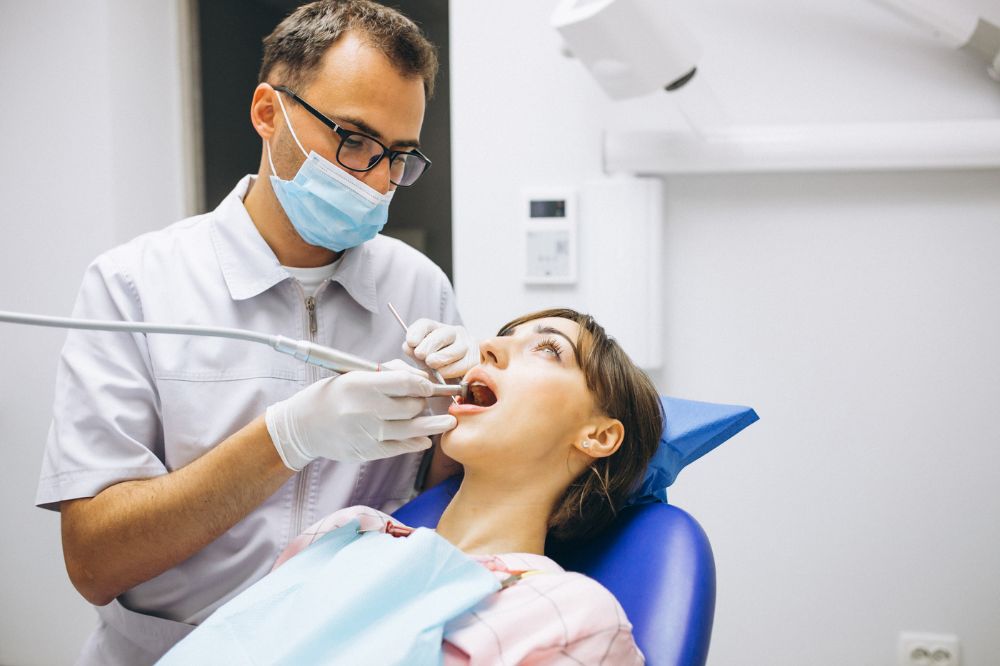
Absolutely! When you have swelling in your jaw, the best thing you can do is to visit a dentist. Swelling can be related to infection, a dental injury, or other dental-related issues.
Even if it seems minor, a swollen jaw can be an indication of something serious and needs prompt treatment.
In this blog, you will learn about what causes a swollen jaw, whether it is an emergency, and what you need to do next.
What Are Common Causes of a Swollen Jaw?
A swollen jaw can be related to many different things; some are minor, but ultimately, if ignored, may still lead to a troubling situation.
Common causes of a swollen jaw are:
- Tooth infections or abscesses;
- Gum disease (periodontal disease);
- Injuries to the jaw;
- Jaw Joint (TMJ) issues; or
- Cyst-related or other growth (less common).
If you are still not sure what is causing your swollen jaw, a Devon dentist will help determine the cause and provide the appropriate treatment.
Is Jaw Swelling Ever an Emergency?
Yes, swelling on one side of the jaw can be a dental emergency. This could mean an infection is spreading or that a tooth problem has gotten worse.
Call a dentist right away if you notice:
- Swelling that spreads or grows quickly
- Pain that makes it hard to eat, speak, or open your mouth
- Fever, chills, or feeling unwell
- Trouble breathing or swallowing
- Pus or a bad taste in your mouth
These signs may point to a swollen jaw on one side or a dental emergency that needs fast care.
What Can a Dentist Do for Jaw Swelling?
Treatment depends on the cause of the swelling. A dentist near you in Devon will first look at your mouth and take some X-rays to determine the cause.
Treatment may include:
- Draining an infected area
- Prescribing antibiotics
- Removing an infected or impacted tooth
- Cleaning infected gums
- Treating TMJ or jaw joint issues
Getting treatment early prevents the issue from spreading or becoming more painful.
What To Do If Swelling Goes Down?
Sometimes the swelling will go down temporarily, but just because the swelling has gone down does not mean the problem has been taken care of. Infections or other dental problems can return and may return worse.
Why you shouldn’t neglect treatment:
- The problem may still be active
- Infection may spread to other parts of your body
- If you wait too long, you could lose the tooth or have more jaw damage
- It is always better to be safe than sorry.
Consult a dentist to check it out and make sure that everything is healing properly.
How to Prevent Your Jaw From Swelling in Future
Developing good brushing habits and visiting a dentist regularly, you can protect your jaw from swelling in the future.
Here are some tips to reduce your chance of having a swollen jaw:
- Brush and floss your teeth daily, combined with regular dental visits
- Do not ignore or delay a dental visit if you are experiencing tooth pain or gum problems
- Avoid chewing hard substances (i.e., ice, pens)
- Wear a mouth guard while playing sports
- Schedule a dentist visit to have a set of professional dental checkups twice a year.
Take the first step to keep your jaw healthy by taking care of your teeth and gums.
Don’t Wait, Get the Help You Need
A swollen jaw is not something to ignore. A swollen jaw may seem small, but it can lead to a bigger problem requiring treatment. Taking action immediately can help you avoid pain and protect your teeth to make them stay healthy.
Do You Need Help with Jaw Swelling? If you’ve been suffering from jaw swelling, jaw pain, or signs of infection, contact Devon Dental Associates today.
Our team is here to determine the cause and help you feel safe with the use of professional treatments.
